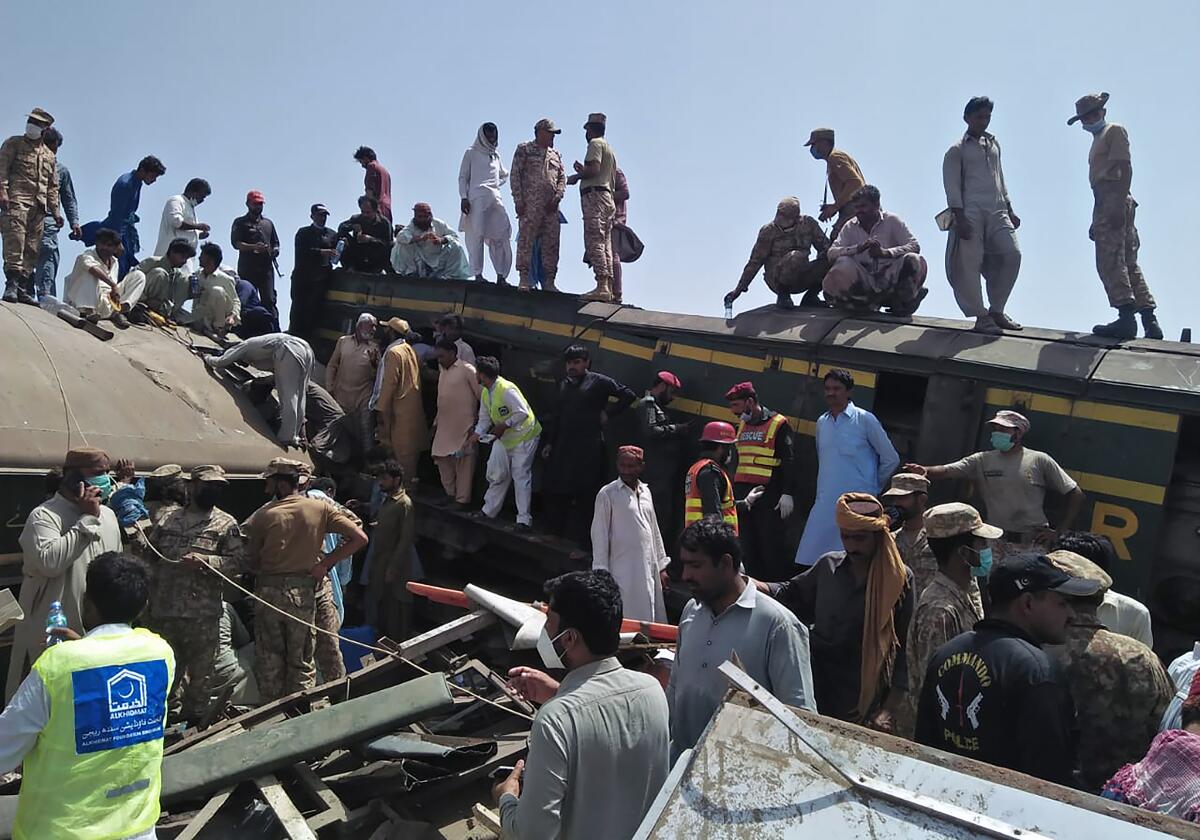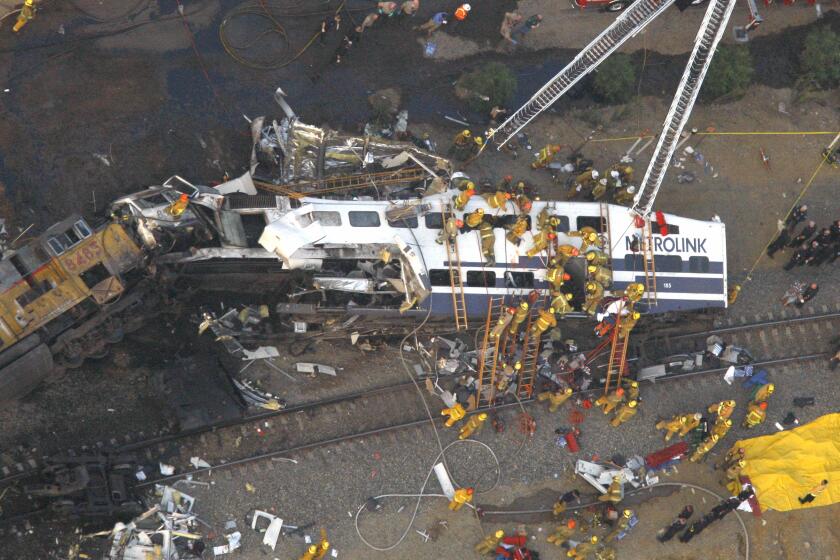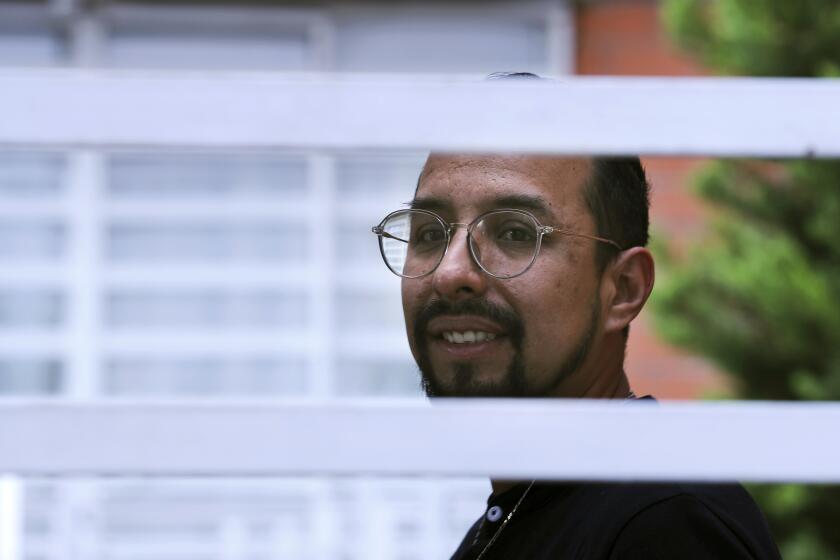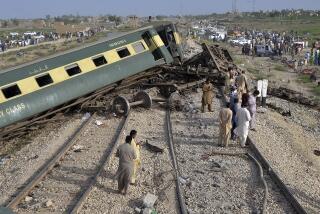Train slams into another one in Pakistan, killing at least 51

GHOTKI, Pakistan — An express train barreled into another that had derailed in Pakistan before dawn Monday, killing at least 51 people and setting off a desperate effort to search the crumpled cars for survivors and the dead, authorities said.
More than 100 other people were injured. Cries for help pierced the night as passengers climbed out of overturned or crushed rail cars, and continued to echo throughout the day at the scene in the district of Ghotki, in the southern province of Sindh.
Heavy machinery arrived to cut open some cars, and more than 15 hours after the crash, rescuers were carefully removing wreckage as they looked for anyone who might remain trapped — though hopes were fading for survivors. The military deployed troops, engineers and helicopters to assist.
About 3:30 a.m., the Millat Express train derailed, and the Sir Syed Express train hit it minutes later, said Usman Abdullah, a deputy commissioner of Ghotki. It wasn’t immediately clear what caused the derailment, and the driver of the second train said he braked when he saw the disabled train but didn’t have time to avoid the crash.
About 1,100 passengers were aboard the two trains, rail officials said.
“The challenge for us is to quickly rescue those passengers who are still trapped in the wreckage,” said Umar Tufail, a police chief in the district.
A 2008 train crash in Chatsworth killed 25 people and broke a long congressional stalemate on a nationwide rail safety project known as “positive train control.” Twelve years later, that system is finally in place.
Authorities brought in lights so rescuers could work through the night. Relatives of some of the missing passengers waited nearby.
Passengers with critical injuries were to be brought by helicopter to a nearby hospital.
Engineers and experts were trying to determine what caused the collision, said Azam Swati, the minister for railways who headed to the scene of the crash. He told the Associated Press that all aspects would be examined, including the possibility of sabotage.
The segment of the railway tracks where the crash took place was old and needed replacing, Habibur Rehman Gilani, chairman of Pakistan Railways, told Pakistan’s Geo News TV. He did not elaborate.
Aijaz Ahmed, the driver of the Sir Syed Express, told the station that, upon seeing the derailed train, he tried his best to avoid the crash by braking but failed. Railway officials said Ahmed was slightly injured, and villagers pulled him from the train’s engine after the crash.
Pakistani Prime Minister Imran Khan expressed his deep sorrow over the tragedy, saying on Twitter that he had asked the railway minister to supervise the rescue work and also ordered an investigation into the crash.
A decision to change cars to be closer to a station exit may have saved Erik Bravo when a Mexico City subway line collapsed, killing 25 people.
According to local media, some of the passengers on the Millat Express were heading to a wedding party.
Mohammad Amin, one of the passengers on the Millat Express, who had minor injuries, told the AP from a hospital that before the train departed from the southern port city of Karachi, he and his brother saw mechanics working on one of the cars.
That led them to believe there was something wrong with it, but they were assured that all was fine. Amin said he believed the train car that was being worked on was the one that later derailed. Railway officials said they were recording statements of survivors, including the drivers.
Train accidents are common in Pakistan, where successive governments have paid little attention to improving the poorly maintained signal system and aging tracks.
In 1990, a packed passenger plowed into a standing freight train in southern Pakistan, killing 210 people in the worst rail disaster in Pakistan’s history.
More to Read
Sign up for Essential California
The most important California stories and recommendations in your inbox every morning.
You may occasionally receive promotional content from the Los Angeles Times.












